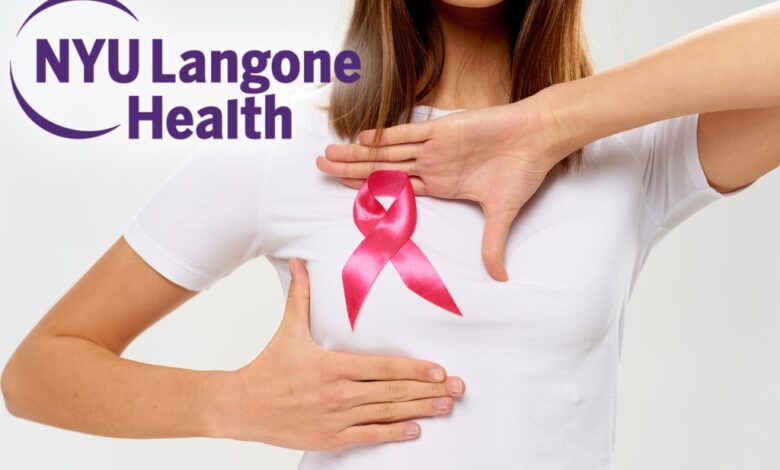Doctor reveals everything to know about breast cancer

October is Breast Cancer Awareness Month — a worldwide campaign to raise awareness of the devastating disease and promote early detection through screenings.
Dr. Elizabeth Comen, a medical oncologist specializing in breast cancer at NYU Langone Health and best-selling author of “All in Her Head,” shared with us everything you need to know about breast cancer, from symptoms to screening protocol and treatment options.
How concerned should a person be about getting breast cancer?
About one in eight women will be diagnosed with breast cancer in their lifetime. This means it’s so critical that women understand what their individual risk factors for breast cancer are, and when they should start screening for breast cancer, so that ideally, if a woman is diagnosed, she’s diagnosed at the earliest possible stage.
What are some risk factors for breast cancer?
There are a number of different risk factors for breast cancer, some of which are modifiable, meaning we can change them, and some of which are nonmodifiable, meaning we can’t change them.
Some of the nonmodifiable risk factors include simply getting older, being a woman or having a family history of cancer. That last point is really important — that’s your family history of cancer on your mother’s side and your father’s side. And that includes any type of cancer, such as breast cancer, ovarian cancer and prostate cancer.
In terms of modifiable risk factors, there are a number of things that you can do to decrease your risk of not only breast cancer but other cancers as well. You can maintain a healthy weight and an active lifestyle.
Diet is really important as well. Maintaining a diet that is more fruit- and vegetable-forward as opposed to processed meats and processed products is essential to decreasing your risk of several cancers.
Another thing that can be really important is decreasing alcohol consumption. We know that even a drink a day is associated with an increased risk of breast cancer and other cancers as well.
What are some classic and lesser-known breast cancer signs we should be aware of?
When we think about breast cancer, we often think of a mass. But not every woman with breast cancer will present with a hardened lump.
Now, of course, if you have something you feel on your body, you should always talk to your doctor about it.
Also talk with your doctor if you have new or abnormal discharge from your nipple, if you have a rash on your breast that hasn’t gone away or if you notice any new lumps or bumps in areas — not just specifically of what we think about in the breast — but also in the neck area or underneath the armpit.
When should women start getting mammograms?
For average-risk women, starting at 40, you should have a yearly mammogram, and you may need to couple that with additional imaging, such as an ultrasound. It’s essential that you talk to your doctor, however, about your personal risk factors and family history.

Can you walk us through what happens during a mammogram?
When you get a mammogram, a special technician will walk you through the whole process. Your breast will be compressed between two plates in an X-ray-like machine that helps visualize the breast tissue in a number of different formations.
These images will then be viewed by a radiologist. The hope is that you will experience very minimal discomfort. If you’re worried or experiencing pain of any sort, please talk to the technician about how we can make you more comfortable.
What about self-breast exams?
I recommend that shortly after your period, when your breasts are less tender, you do a self-breast exam so that you can understand what your normal breast tissue feels like. Talk with your doctor about any concerns.
If I get diagnosed with breast cancer, what are my treatment options?
When it comes to being diagnosed with breast cancer, we have many different treatment options.
Some women have breast cancer that’s confined to the breast and perhaps lymph nodes underneath the armpit. Some women may have what we refer to as metastatic breast cancer, which means breast cancer cells have spread from the local area of the breast to another site of the body.
And there are different ways that we treat these different stages of breast cancer. The key is, there is a team of doctors, from medical oncologists, surgeons and radiation oncologists to best figure out the treatment plan for you. The good news is, over the last few decades, there’s been tremendous evolution, hope and change in the landscape for how we treat breast cancer.
Elizabeth Comen, MD, is a medical oncologist and associate professor of medicine at the NYU Langone Health Perlmutter Cancer Center. She is an internationally recognized breast cancer oncologist and women’s health specialist who focuses on caring for patients and advocating for women’s health. Her recently published book, “All in Her Head,” unpacks the legacy behind pervasive gaps in women’s health care.




